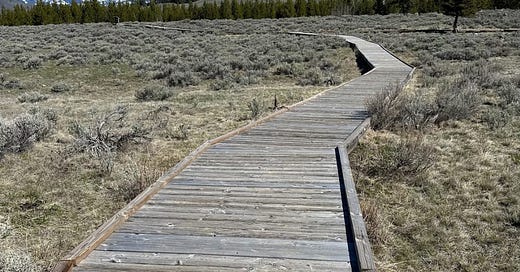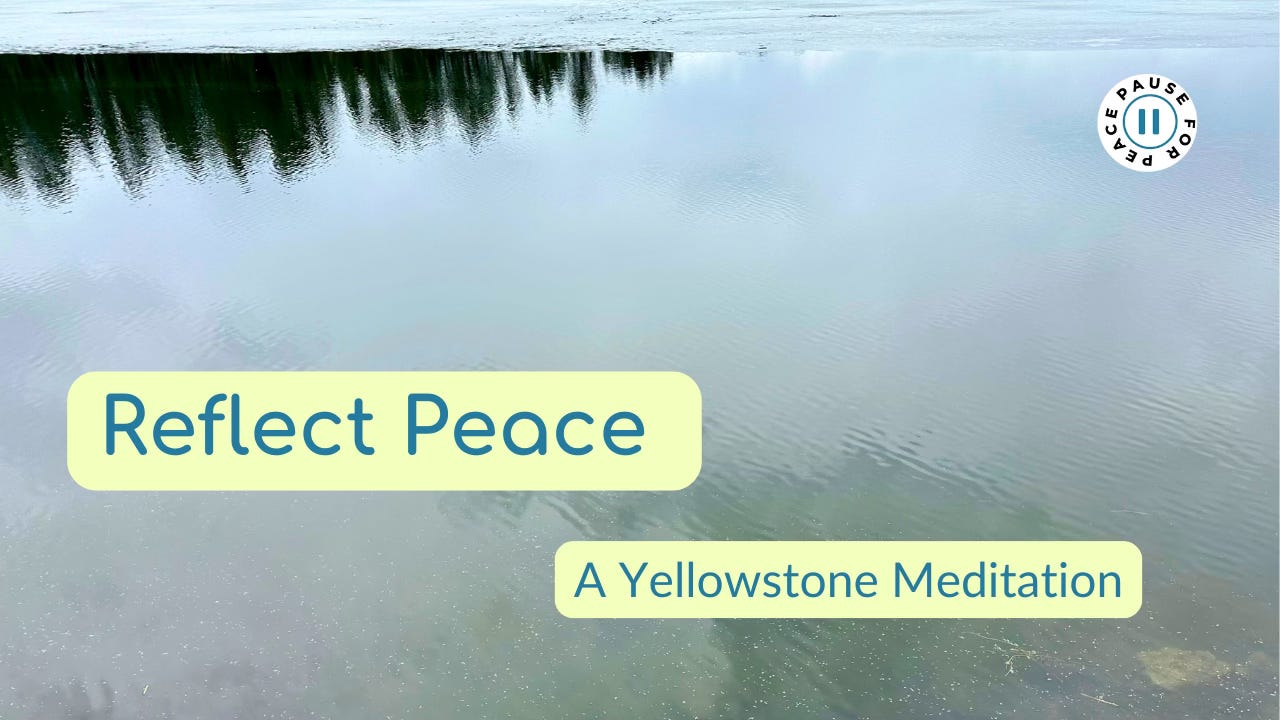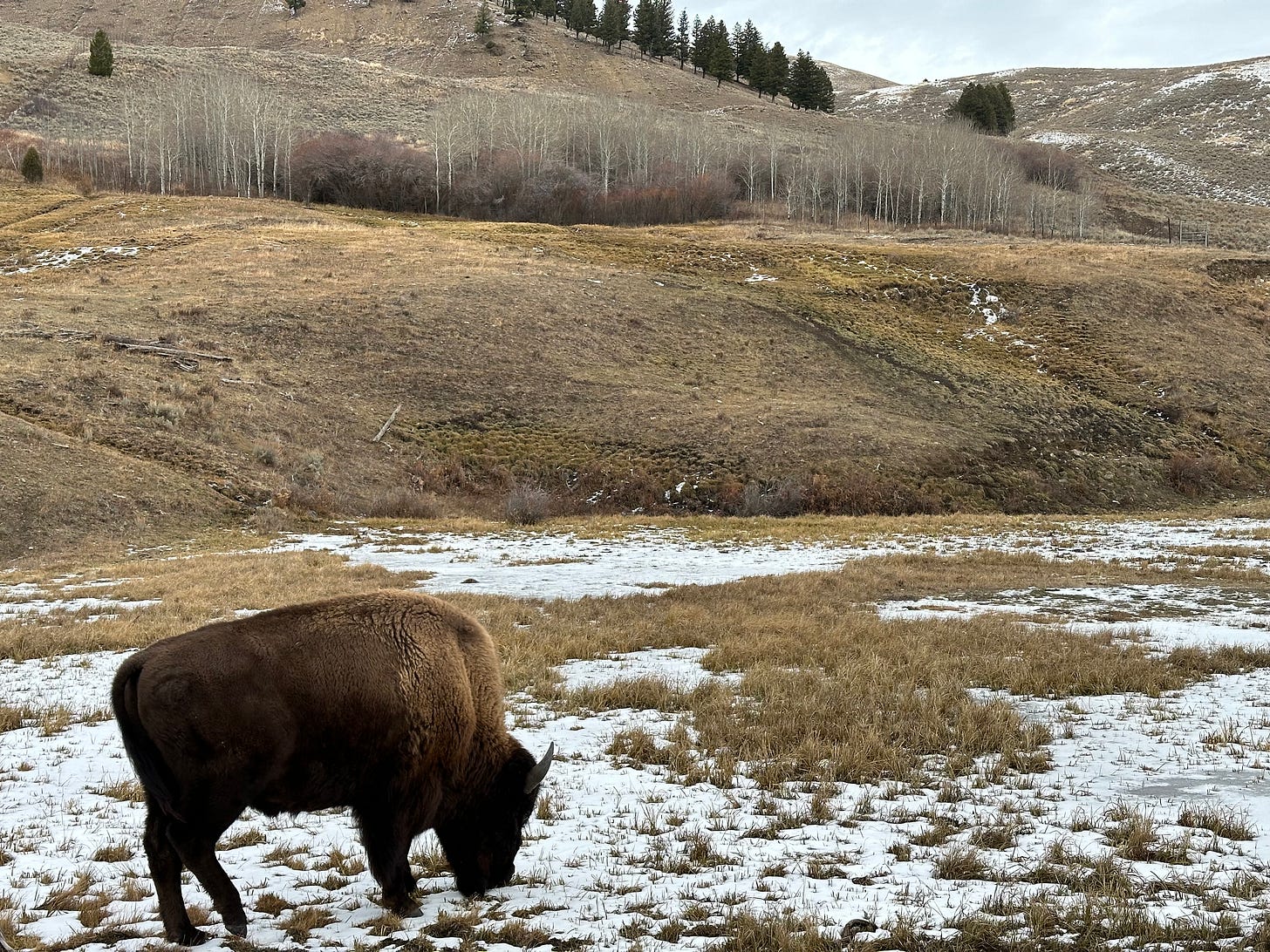This “Present Moment” Thing
This year has been a whirlwind of change. And the challenges and complexities are only going to increase.
So . . . why would we want to be present to all that difficulty? With all the confusing headlines and real changes in our real lives, isn’t it ok to chill out with some TV shows?
When life gets difficult, it’s temping to zone out, block out, numb out. And to be honest, I do some of that myself. Sometimes.
But there is another option.
Maybe you’ve heard wise people or meditation teachers talk about “being present.” What do they mean exactly? And more importantly, if your present feels like shit, why would you want to spend more time in it?
Those are great questions.
To answer them, we have to look at what the “present moment” really is, and what it is we want.
With 25 years of meditation experience and study under my belt, I could write for hours about the technical definitions of a “moment in time” or “the present,” but you don’t have time to read all that so let’s start with the easier part.
What do we want?
To feel better!
In a nutshell, that’s it. Most of us want to feel good most of the time.
But if we don’t feel good inside, or we face challenges from the world around us, of course we naturally want to escape that. Quash the bad feelings, blame the wrongdoers, and then chill out.
The only thing is . . . good feelings are also available in the present.
As a peace teacher, I often have to juggle opposites.
Inner peace is abundantly available, an ever renewable resource at our fingertips - but if you’re not feeling it, it seems more than a trillion miles away.
But in reality, peace is never more than a breath away.
That brings us back to defining the present moment, which I’ll keep simple:
The present moment is a strange time. It is small, specific to right now . . . and it is much bigger than that. All possible feelings can exist in a present moment, even opposite feelings.
It is the time zone of inner peace.
Inner peace is always available, in the present moment. We just have to learn to see it.
If we can learn how to be a little more present, we can discover the peace that is always there, waiting for us to see it.
Does that sound too good to be true?
Let’s see how peace can be the silver lining of this “present moment” thing.
Peace is like . . .
I write a weekly peace email, Wednesday Wisdom, and I recently asked my readers to ponder which precious metal or gem is most like peace.
Maybe gold because it’s so valuable. Or diamonds because they are as indestructible as inner peace. Both good guesses but.
Peace is more like silver.
Picture two identical silver spoons lying side by side, one unpolished, the other a gleaming, freshly buffed masterpiece. If you didn’t know better, you’d think they were made from completely different metals. One superior, the other a less valuable, dull metal. You might even pay more money for the polished spoon or toss out the dull one.
But they are the same metal, just in different states of polish.

When it’s polished, silver dazzles the eyes and we display it proudly. But left alone, the metal gets dark, tarnished.
That’s a natural process, not something the silver did wrong.
In a similar way, your inner peace can get covered in layers of tarnish. It’s not because you are wrong or bad. It’s a natural part of life, just like silver will dull from inattention.
And like a tarnished silver spoon can get polished and shiny again, peace can become a gleaming, priceless part of your life. Or it can be sitting in the background, dull, ignored.
Either way it’s still there, just like silver is still under the layers of tarnish.
Polish your peace
So how do we take off our layers of tarnish to find the silver lining of peace in the present?
First: we have to accept that getting tarnished is a natural part of life.
Some cultures and religions have spoken of sin, and since I’m a freelance nun, I’d like to add that I want to take the manipulative sting out of that word and keep things simple. So let’s equate most sins to no more serious than tarnish on silver. It doesn’t ultimately damage the silver, but it can drastically alter our view of the silver.
Second: remove blame and shame.
Imagine someone sitting down with these two silver spoons and giving the tarnished spoon a lecture about how it must be a better spoon, must be cleaner like the other one, and on and on talking to the spoon - but never picking up a polishing cloth.
It would be silly for someone to do that, but we do something similar to ourselves.
We can easily fall into blaming ourselves (or others) for being bad, less good, not enough. That’s common - I’ve done it plenty.
When that happens, it’s like the tarnished spoon believing it is made of less good metal than the polished spoon and therefore bad.
Or maybe you believe you are more pure than others and therefore superior?
We know the unpolished spoon is just as pure as the polished spoon. It just needs some maintenance to restore its shine.
But if the dull spoon believes it will never shine, if it believes it is fundamentally less good than, or better than, the other spoon, why pick up the polishing cloth?
Peace is the same. It’s always there, but if we are we too dulled down by the challenges of life or our bad habits, we don’t see it.
Third: The only thing is . . .
The present moment is the time zone of peace. Peace doesn’t exist in the past, and if we’re saying we’ll feel more peace later, in the future, then we will be waiting a long time and squandering our chance to feel peace now.
To find peace, we have to get present.
“But that’s where all the bad feelings are!”
I know, I know. Sometimes, people do us wrong and then refuse to collaborate toward a mutually satisfying solution. It’s not fair or right that we’re left to sort through the debris. But the feelings you have about that wrong are yours to deal with.
Blaming others, hating the bad feelings - you can do that because you have free will. But those actions will not polish your peace. Instead, they add more layers of tarnish.
Sometimes, we do or say things we later regret. If we caused harm to others or ourselves, then it’s good to assess our actions, feel appropriate remorse, make amends if possible, and move on.
AKA: pick up the polishing cloth.
That’s the reward. If we can learn to gradually tolerate the bad feelings, with proper support, they get cleared away, creating more space for peace.
So what “maintenance” do we need to polish our peace?
Meditation has been a big one for me.
Every time you return your wandering mind to the focus of the meditation, that’s like whipping away a layer of tarnish.
But it’s not just meditation. Time in nature, with horses and pets, quality time with good friends and family, cooking a nice meal, reading, sharing my knowledge and skills - any healthy activities that get me present.
Think of them as polish.
If there’s a hobby or art you practice, any time you spend doing that is akin to polishing your peace.
But there are behaviors that may be socially endorsed and even legal, but that tarnish us.
Mindlessly scrolling, overeating, zoned out in front of a TV. Not wrong or bad, per se, but dulling.
Or a company might legally get away with paying low wages, but that mindset creates a build up of inner tarnish the leaders will have to reconcile with at some point.
It’s not as simple as looking at laws or even holy books to give us all the answers.
We each have to discover behaviors, attitudes, and speech patterns that leave a layer of ick, and which ones bring relief, confidence, peace.
The good news is that even though our missteps and the grind of daily life can dull us down, we still have that inner brilliance.
We’re all silver, waiting to shine. Some people just have more coats of tarnish to clear up.
That’s what I mean, when I say inner peace is the silver lining of the present moment.
We might get turned around, confused by the layers of tarnish. But.
We’re already silver, waiting to shine.
That’s what I see, when I look at people. Each person has an inner brilliance and peacefulness, just under the surface.
We just have to remember that peace exists in the present, even if there are bad feelings too. We have to remember to pick up our polishing cloth and clear off our natural layers of tarnish.
So what will you do - today - to polish your peace?
If you’d like to try a meditation to polish your peace, I recorded this one by a quiet little lake in Yellowstone National Park. It’s 15 minutes.
Thanks for some of your precious time and attention today. If you’d like to help me create a more peaceful world, please subscribe and share.
In peace,
Juniper
Acknowledgements
This writing and all images came from Juniper McKelvie. This email was written in in Montana, on the ancestral homelands of the Bitterroot Salish, Upper Pend d’Oreille, and Kootenai First Nations. Path and buffalo images from Yellowstone, in Wyoming, on land that is sacred to at least 27 First Nations. Klamath Lake photos from the traditional lands of the Klamath, Modoc, and Yahooskin. Bell photo from Vermont on the traditional lands of the Abenaki. Rocky Mountain photo from traditional lands of the Ute, Arapaho, and Cheyenne First Nations. California poppies photo from the traditional lands of the Coast Miwok.
I’m grateful to the many generations of First Nations peoples who carefully preserved these beautiful landscapes and the diversity of plants, animals, people, and ecosystems.











